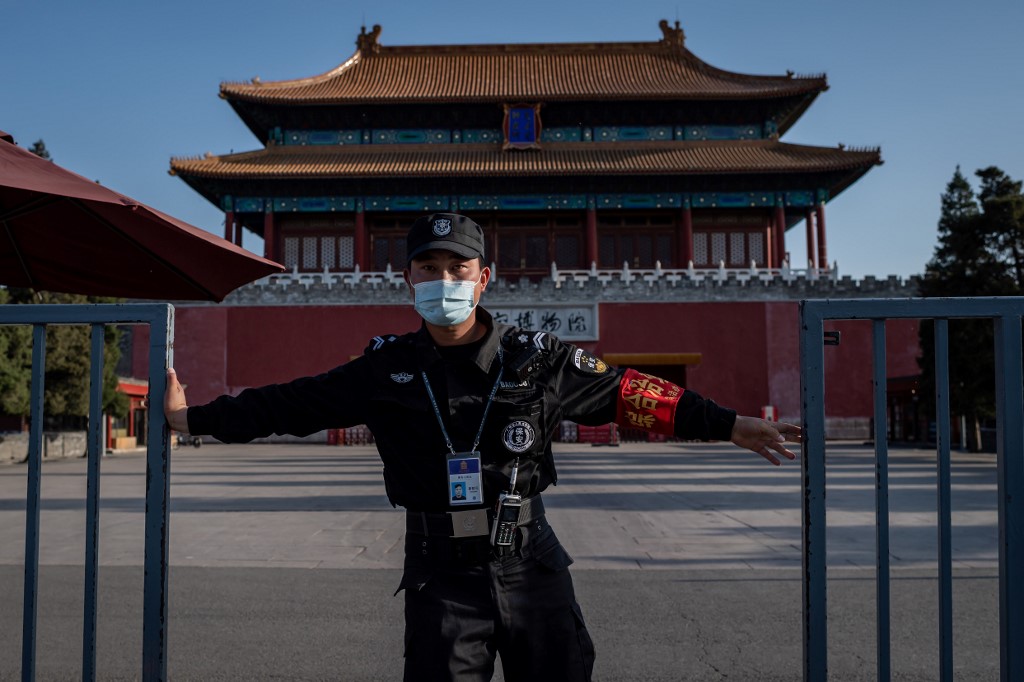
A security guard wearing a facemask amid the concerns over the COVID-19 coronavirus closes a gate outside the forbidden city (back) in Beijing on April 12, 2020. (Photo by NICOLAS ASFOURI / AFP)
China’s Forbidden City will reopen on Friday, three months after it closed due to the coronavirus crisis — the latest signal that the country has brought the disease under control.
The sprawling imperial palace sitting across Tiananmen Square was shut down on January 25 as authorities closed tourist attractions and took other extraordinary measures to contain the virus, including locking down an entire province.
The Palace Museum, which manages the Forbidden City, announced Wednesday that it will reopen from May 1, with a daily limit of 5,000 visitors — down from 80,000 before the pandemic.
Authorities have implemented other measures to reduce risks of infections at the cultural site, which in normal times attracted huge crowds.
Visitors will have to wear masks and show health codes on a special mobile phone app that indicates if they are an infection risk before entering.
Temperatures will be taken at the entrance and anyone coughing or showing a fever will be turned away. Visitors will have to stand one meter from each other.
Within half an hour of the announcement, around 2,500 tickets for May 1 were booked, according to the ticketing website.
While much of the rest of the world is still enforcing confinement measures, China has been resuming work, reopening schools and lifting restrictions on movement as the number of domestic infections have plunged and no new deaths have been reported in two weeks.
The capital announced earlier that Beijing’s museums would progressively reopen from May 1.
Beijing also lowered its emergency alert from the highest level and lifted a strict quarantine requirement for domestic travelers from “low-risk” areas, which it had kept in place long after many other regions in the country eased travel restrictions.
Within half an hour of the announcement, searches for air tickets climbed quickly on booking website qunar.com, according to the official Xinhua news agency.
Arrivals in Beijing from the virus epicenter of Hubei province as well as travelers coming from abroad are still required to complete a 14-day quarantine, state broadcaster CCTV reported.
The National People’s Congress — the country’s rubber-stamp legislature — set a May 22 date for its annual session, which had been delayed due to the outbreak.